Spartan Race Munich: Through the Same Fire
- Mojtaba Parvaneh

- Nov 4, 2025
- 3 min read

It was one of those rare spring mornings in Munich when the air was crisp, the sun was warm, and the Olympic Park was alive with energy. Built for the 1972 Olympic Games, Olympiapark München remains one of Germany’s most iconic sports venues — a place where architecture, history, and human spirit meet. Its sweeping tensile roofs, designed by Frei Otto and Günter Behnisch, still shimmer like glass waves over the stadiums and green fields below. On this day, however, the focus wasn’t on history or design — it was on raw endurance.
The park hosted one of the world’s toughest obstacle races: the Spartan Race, a global endurance event that pushes both body and mind to their limits. Since its creation in 2010 by Joe De Sena in Vermont, the race has become a phenomenon across more than 30 countries. In Munich, competitors gathered for the Sprint (5 km), Super (10 km), and Beast (21 km) challenges — a test of stamina, teamwork, and courage.

Participants climbed walls, carried sandbags, crawled under barbed wire, swung across metal rings, and faced the final symbolic test: leaping over fire. The rules were simple but brutal, fail an obstacle, and you must complete 30 burpees as a penalty. Yet, amid the physical intensity, there was something more profound about this race. It wasn’t just about finishing. It was about proving something — not to others, but to oneself.
What caught my attention most was the presence of women in the field. They ran the same course as the men: the same distance, the same weights, the same fire. Many weren’t competing with others but with themselves, determined to prove they could take on every challenge under equal conditions. Their faces carried focus and resolve, the quiet determination of someone who knows strength isn’t only measured in muscle.
When I lifted my camera, a few of them smiled — a momentary shift from strain to grace. It was that balance between power and elegance that defined the day. These women weren’t just completing a race; they were embodying something universal, the courage to face hardship and still remain themselves.

The final obstacle, the leap over flames, was more than a physical act. Standing on one side of the fire, I watched as the runners approached, their shapes blurring in the rising heat. It reminded me of Chaharshanbe Suri, an old Persian tradition from my homeland, where people jump over fire on the last Wednesday before the New Year to cast away the past and welcome renewal.
In both moments — ancient ritual and modern race — the symbolism felt the same: courage, transformation, and crossing toward something brighter.
Watching those runners jump through the fire, I couldn’t help but think of how far women have come — and how much further there still is to go. Around the world, opportunities have grown, yet in some parts of life, the path ahead remains uncertain. Here, though, on this track, the ground was level, and the challenge was the same. And given the same chance, many women didn’t just keep up — they excelled.
The Spartan Race at Munich’s Olympic Park wasn’t just an athletic competition; it was a celebration of resilience and equality in opportunity. Between the cheers, the dust, and the burning finish line, there was a quiet message:
strength isn’t about winning — it’s about showing up, pushing through, and daring to leap.


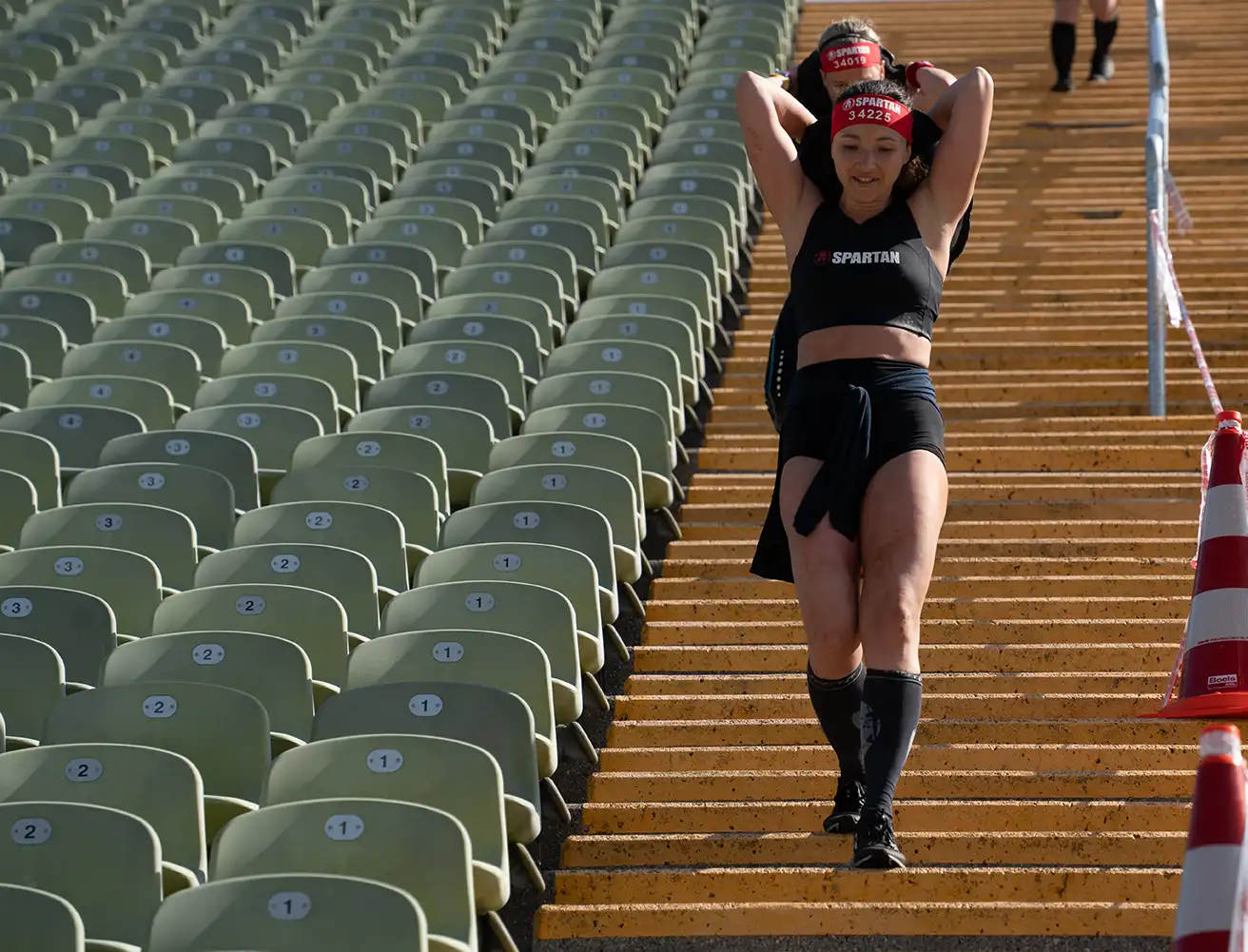
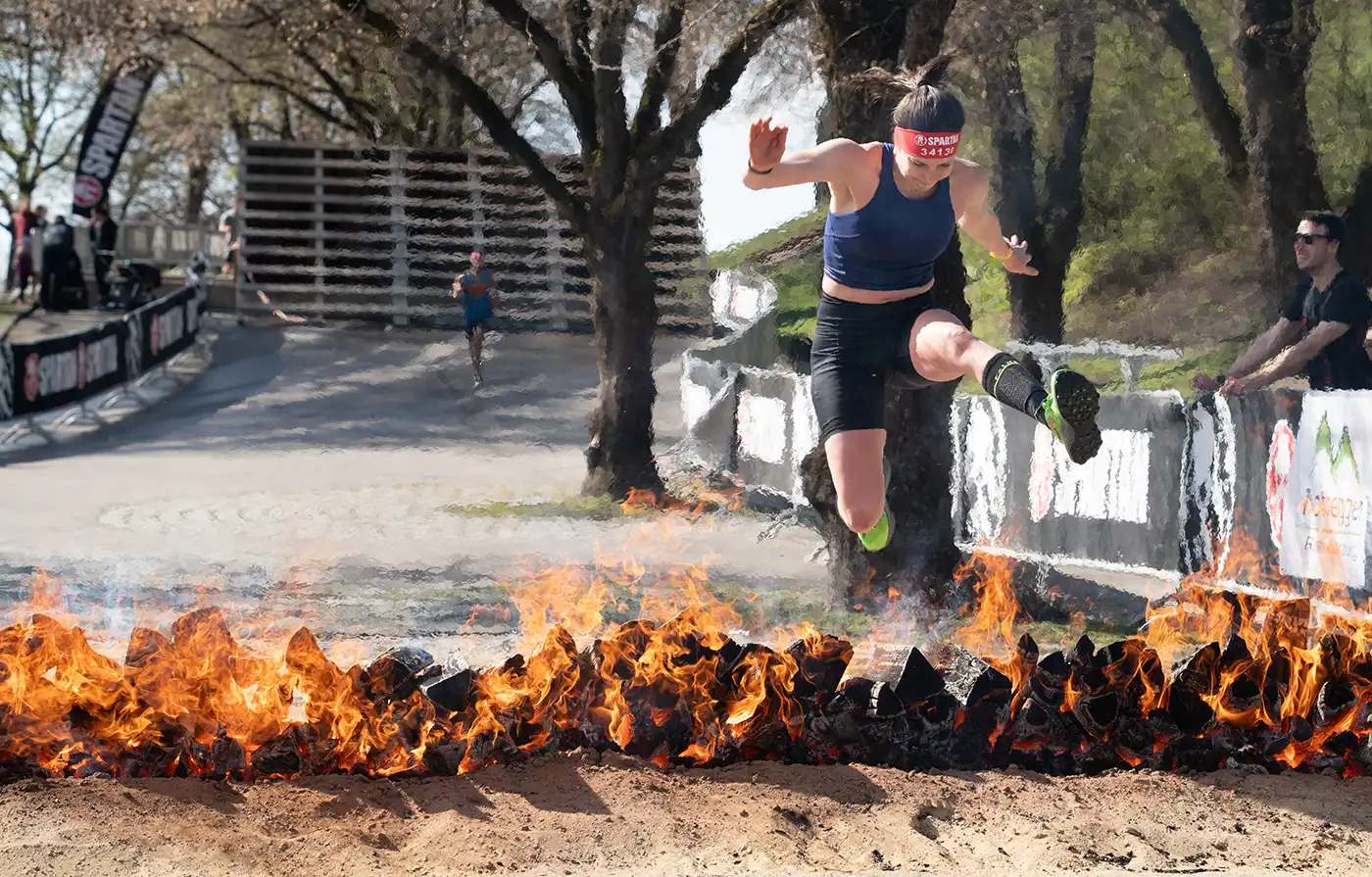
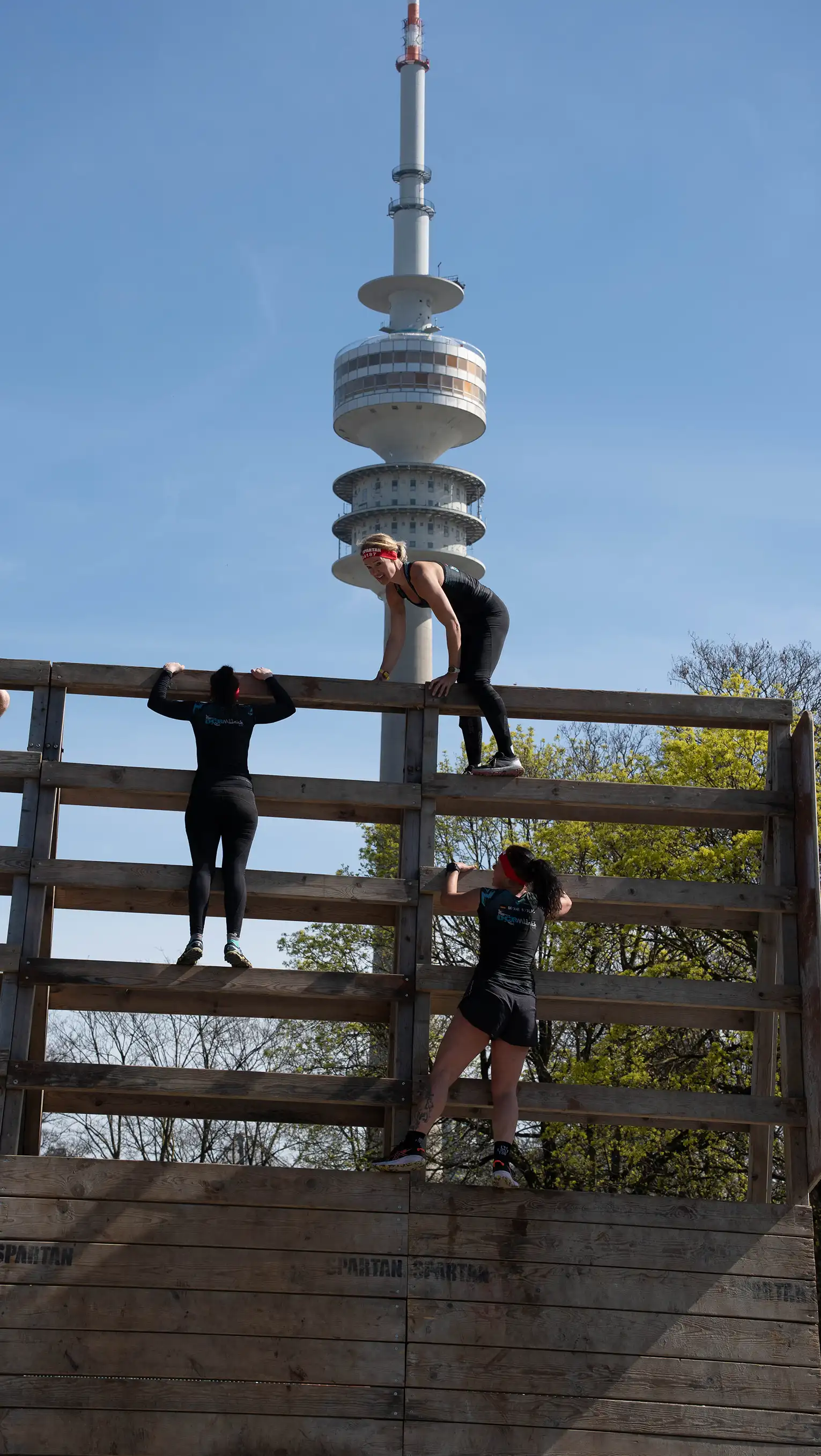
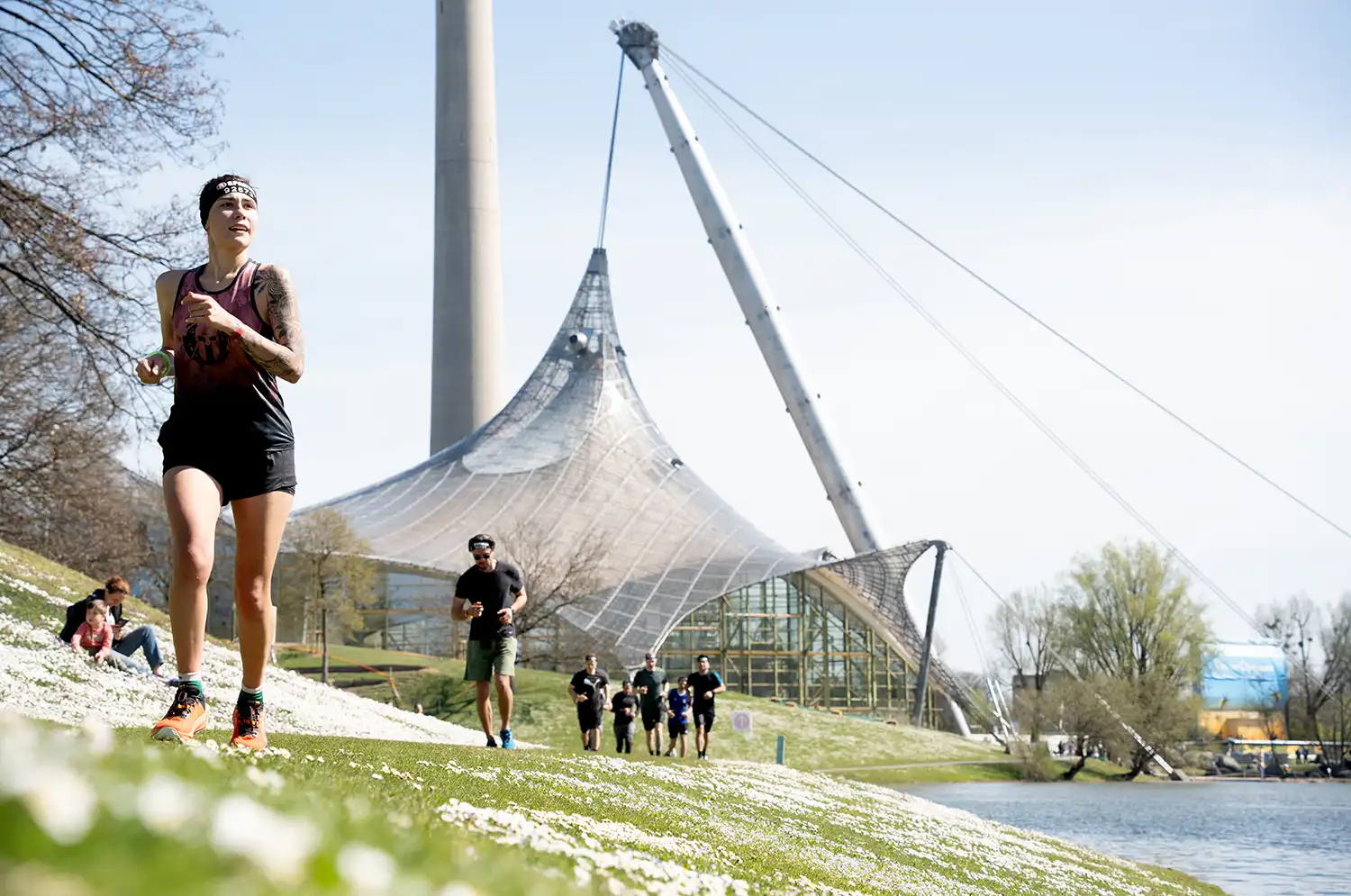
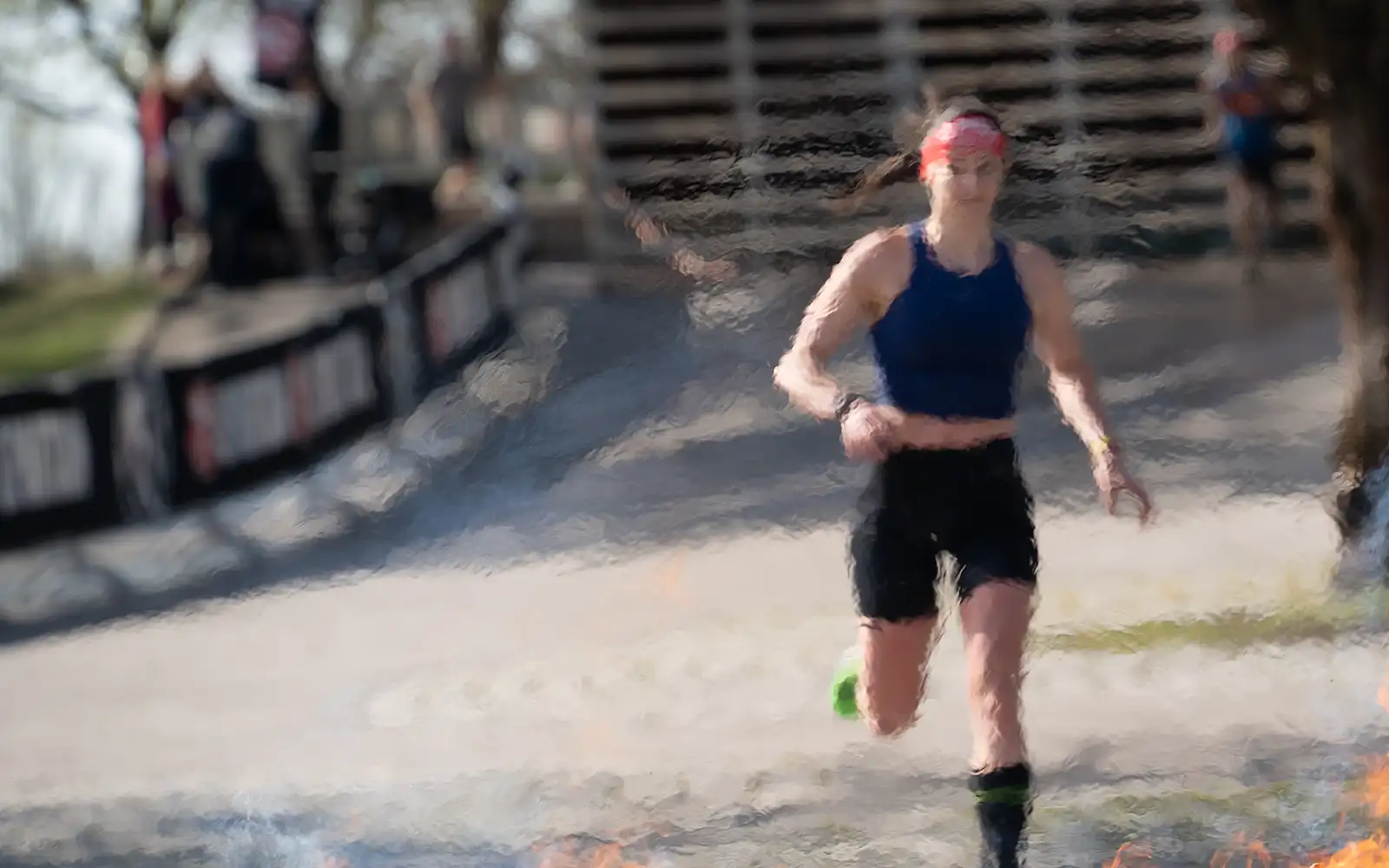



Comments